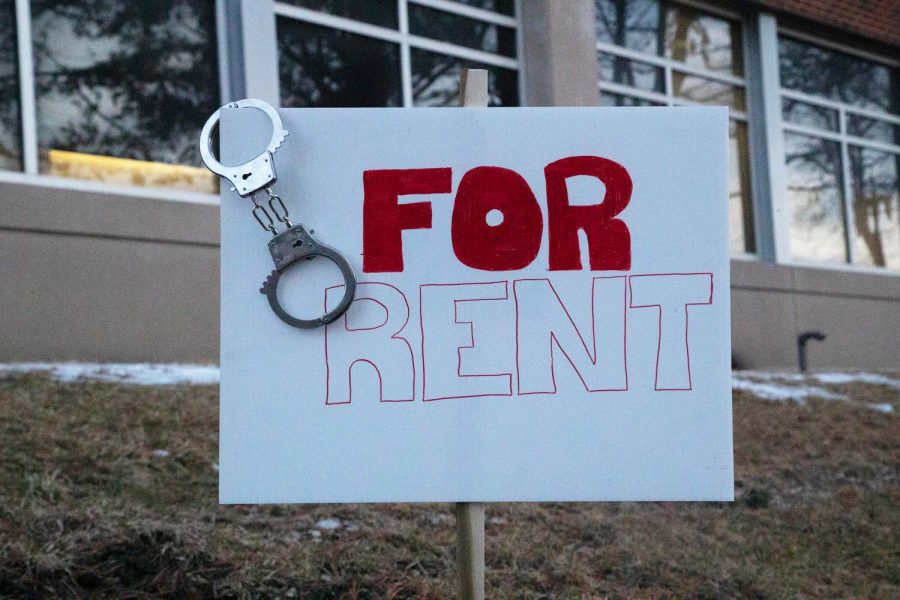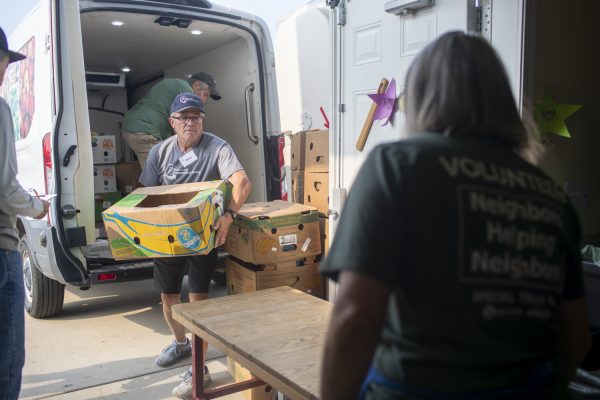Iowa lawmakers consider bill to help survivors of specific crimes to terminate rental leases
The Iowa House is considering a bill that may benefit survivors in certain crimes to break out of their leasing agreements early. If the bill passes the current legislative cycle, Iowa will be the 33rd state to have the bill enforced.
Photo Illustration.
March 9, 2022
Editor’s note: This article contains references to domestic violence and sexual assault.
Iowa lawmakers are considering a bill that would permit survivors of sexual abuse, domestic abuse, elder abuse, or stalking to break their leases early without penalties.
House file 2479, which passed a House committee in February, specifically focuses on mitigating financial abuse in these situations.
The bill requires people experiencing domestic violence provide documentation, such as a court order or a police report, to their landlords before leaving the lease.
Although the proposed bill is new in Iowa, similar legislation has been passed in 32 states, including Michigan and Illinois.
Lindsay Pingel, director of community engagement with the Iowa Coalition Against Domestic Violence, supports the legislation. She said the coalition is active in all 99 Iowa counties with about 350 to 370 advocates working one-on-one with people experiencing domestic violence.
The cause of financial abuse on survivors of domestic violence can vary from numerous factors like stress of unemployment, having children at home, or the COVID-19 pandemic, Pingel said.
“Any time you add extra stress or extra layers, on top of an unhealthy relationship, violence is going to escalate,” Pingel said. “When it comes to financial abuse, it’s a tactic that we don’t often talk about when we think about domestic violence. We think about physical harm versus some of the other ways that someone is in an unsafe situation.”
Financial abusers could also put people experiencing domestic violence in unsafe situations, like obtaining the person’s social security number and maxing out their credit cards, Pingel said.
“Economic security is something we all need, to thrive and move forward,” Pingel said. “So, when someone is kind of holding that safety hostage over their head, sometimes it is safer for survivors to stay in that relationship, or they don’t have a means to get out at that point.”
Adam Robinson, executive director of the University of Iowa Rape Victim Advocacy Program, said for survivors who have experienced sexual harm from someone they know, which is common for sexual assault or abuse, can also experience financial abuse.
“It’s important that we … continue to think of ways we can evolve the systems that we live within to be more empowering and inclusive, and equitable,” Robinson said.
Alta Medea, director of community engagement with the Domestic Violence Intervention Program, said the program has helped 1,519 individuals in Johnson County during 2021. Medea said one in four women experience abuse and one in six men experience abuse.
Women could be more prone to being a survivor of financial abuse, Medea said, due to power struggles or toxic masculinity.
“We also know that men under report, so it’s hard to say for absolute certainty that men under report abuse, male victims of intimate partner violence often aren’t talked about,” Medea said.
She said before this bill was proposed, there wasn’t an absolute solution for how people experiencing domestic violence can break out of their rental agreements.
“The decision was completely determined by the landlord-and that is a hit and miss,” Medea said. “This bill certainly provides a much more concrete way out for folks”.
If you or someone you know is looking for resources or advocacy services, please use 515-244-8028 to connect with your local program or visit www.icadv.org. Advocates are also available 24/7 via the Iowa Victim Services Call Center, 1-800-770-1650, or text “iowahelp” to 20121. All services are free and confidential. You can also visit the Domestic Violence Intervention Program’s Hotline number 1-800-373-1043. Advocates are available 24 hours a day, seven days a week.














